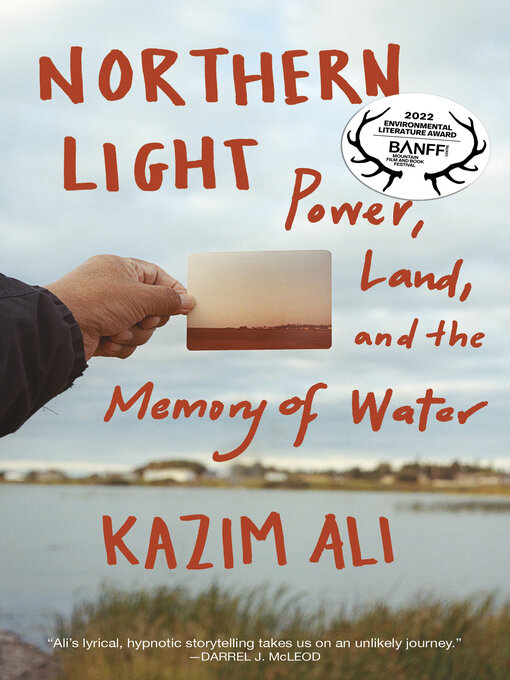Winner, Banff Mountain Book Award for Environmental Literature
Finalist, Lambda Literary Award (LGBTQ Nonfiction)
"It begins to rain as we fly, falling in solid sheets, water from sky to earth — a free system of exchange."
Kazim Ali's earliest memories are of Jenpeg, a temporary town in the forests of northern Manitoba where his immigrant father worked on the construction of a hydroelectric dam. As a child, Ali had no idea that the dam was located on the unceded lands of the Indigenous Pimicikamak, the "people of rivers and lakes."
Northern Light recounts Ali's memories of his childhood and his return to Pimicikamak as an adult. During his visit, he searches for the sites of his childhood memories and learns more about the realities of life in Pimicikamak: the environmental and social impact of the Jenpeg dam, the effects of colonialism and cultural erasure, and the community's initiatives to preserve and strengthen their identity. Deeply rooted in place, Northern Light is both a stunning exploration of home, belonging, and identity and an immersive account of contemporary life in one Indigenous community.

